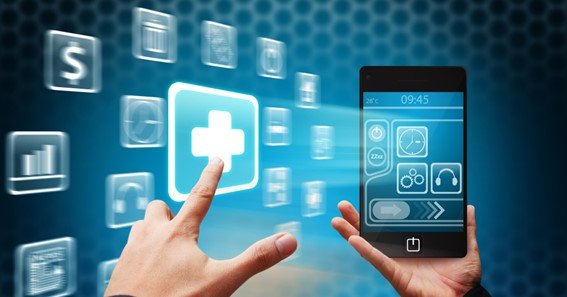From VR and AI to wearables, digital technology is gaining rapid ground in healthcare. Considering its many uses, it’s easy to see why. Kilo Grupe experts agree that digital health and wellness can change people’s lives.
The global digital health market amounted to $116.39 billion in 2019. The same source predicts that by 2027, the market will reach $833.44 billion.
Key market segments include fitness, personalized nutrition, mental wellness, and corporate wellness. Across these, a few technologies are improving patients’ lives even as we speak. Let’s take a closer look at them.
click here – How to keep your business safe from cyber attacks?
Simulations in Virtual Reality (VR) and Augmented Reality (AR)
VR uses computer modeling to simulate a 3D environment. Users can interact with this environment by wearing a VR headset.
You may be familiar with VR use in the media, mostly from video games. But VR has also made its way into medical schools.
- Virtual surgeries. Solutions like Osso VR enable surgeons to perform virtual surgeries. Simulating operations in a safe digital environment has a big advantage. It can help train doctors to better deal with high-stress situations.
- Simulating other high-stress events. VR can also simulate crises like accidents or disease outbreaks. The Children’s Hospital Los Angeles is a great example. The hospital generated VR simulations of emergency scenarios in pediatric care. Eleven other healthcare institutions adopted the successful program.
- Onboarding and training. Other VR applications in healthcare include onboarding and professional medical equipment training.
It can reduce medical errors and help medical experts develop automatic response behaviors that can save lives.
Alongside VR, Augmented Reality (AR) can provide more effective mental health treatments. AR uses digital visual elements and sensory stimuli to enhance real-world environments.
- Exposure therapy. VR and AR can immerse patients in environments that trigger anxiety or fear. Exposure therapy can help patients deal with their fears. It can also create relaxing settings that enhance treatment.
- Stress-release through self-reflection and mindfulness. The University of Alberta developed the YOU-AR-OK AR mental health app. The app helped users manage mental health during the COVID-19 pandemic.
The app prompts users to answer how they are feeling during the day. It features an AR dog avatar that asks questions inviting self-reflection.
click here – When is it the perfect time to appoint a car accident attorney?
Big data and AI automate analysis and predictions
Unlike VR and AR, big data and AI work behind the scenes. Yet their role in health and wellness is growing by the day
Take an AI diagnosis system as an example. It can diagnose COVID-19 pneumonia by looking at CT scans with 90% accuracy. It can do this in just 20 seconds. By contrast, a senior radiologist would need at least 20 minutes to perform the task.
AI-based diagnosis tools have made their way into the App Store as well. Apps like Symptomate use AI to check your symptoms. The app can understand over 1,300 symptoms. And it can diagnose over 700 conditions.
Big data analytics is another technology that’s revolutionizing preventive medicine. Big data defines examining large sets of data to find correlations and patterns. It can help spot abnormalities faster than humans and automate this process.
The Rothman Index, for example, is an algorithm that measures patient risk. Data comes from electronic health records, lab results, and other sources. It helps doctors spot changes and act before the patients develop complications.
Wearable devices provide readily accessible data
Your phone already tracks basic activities, like steps and distance covered. Wearable devices go beyond that and can serve many functions. They include:
- Glucose monitors
- Blood pressure monitors
- ECG monitors
- Biosensors
- Fitness trackers
- Smart health watches
Diabetes monitoring devices can read your glucose levels within seconds. Some use fingersticks; others come with sensors that you apply to your skin.
UAB Kilo Grupe’s Klinio app provides a personalized diabetes management solution. It promotes positive habits through diet, habit, and lifestyle changes. It integrates with glucose monitors that log spikes in your blood sugar levels.
Diabetes monitors can provide instant feedback and alerts. These help you make smart choices, like skipping dessert on your next meal.
Cardi.Health, another app developed by Kilo Grupe, integrates cardiovascular sensor data and shows it on the app. It empowers users to manage hypertension and cholesterol levels.
Blockchain simplifies data sharing and management
Patient data is at the heart of digital health and wellness solutions. Without it, personalization and AI-powered analysis wouldn’t be possible. Nor would predictions about your outcomes.
But handing over your medical data poses security and privacy risks. Even more so when this data has to travel between sources. That’s where the blockchain comes in.
A blockchain is a shared digital ledger. It makes it easy to record and exchange data. At the same time, it safeguards the data from hacks or theft. The blockchain sees many uses in healthcare:
- Preserve and exchange patient data
- Secure the data
- Make data more accessible without compromising security
- Identify medical mistakes
- Consolidate data
Medicalchain is a blockchain platform that automatically verifies patient insurance. It can also identify top candidates for clinical trials. It helps streamline the data flow between different medical institutions, doctors, and patients.
Meanwhile, the MIT program MedRec relies on the Ethereum blockchain and provides a powerful decentralized healthcare data management system.
Kilo Grupe helps drive the digital health transformation
Kilo Grupe’s expanding health and wellness solutions embrace digital technology. As we’ve seen, both Klinio and Cardi.Health integrate sensor data. What’s more, they rely on data algorithms for personalization.
Upcoming solutions like the AI-powered Revolab continue the digital health transformation. The program provides simple blood test kits you can convert into health insights.
Another solution in development, the Fleming app, also relies on AI. The app provides accurate diagnosis support for doctors and patients.
More than a health trend, digital health and wellness solutions are enhancing healthcare. They are filling gaps and empowering patients to safeguard their health proactively.
They are becoming powerful tools at home, at work, and in hospitals, for doctors and patients alike. Equipped with them, becoming healthier gets easier. And so does staying healthier.
Click here to find more information about Kilo Grupe.






